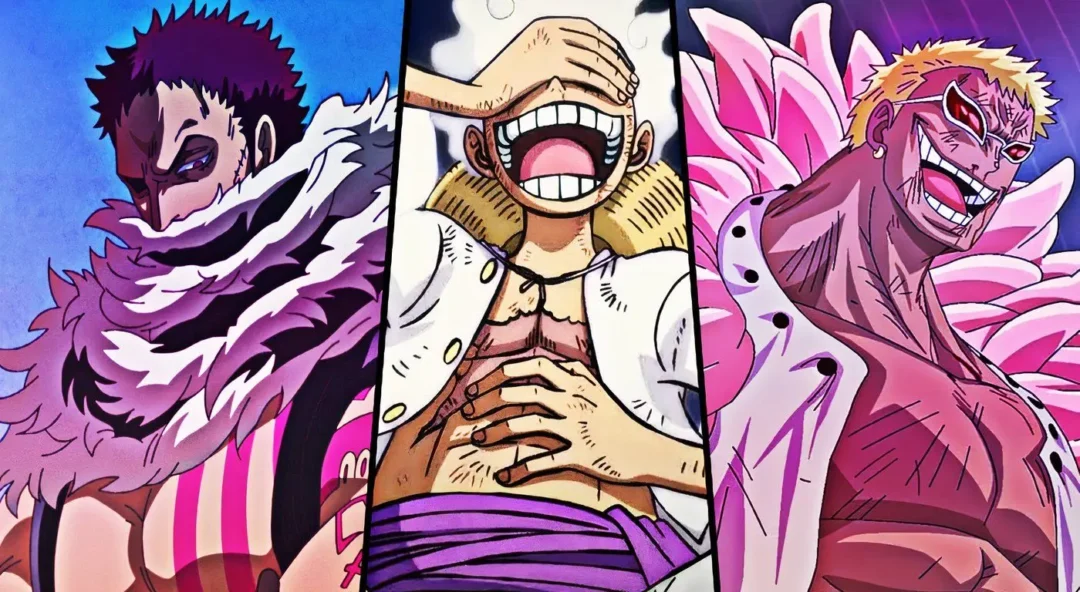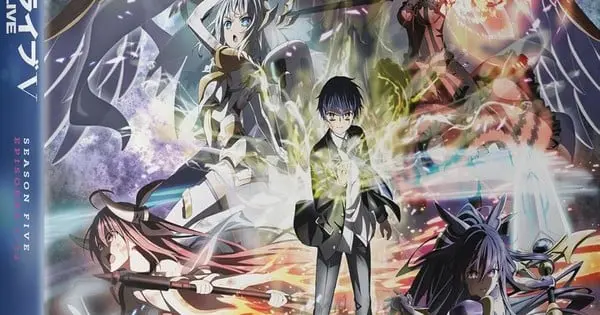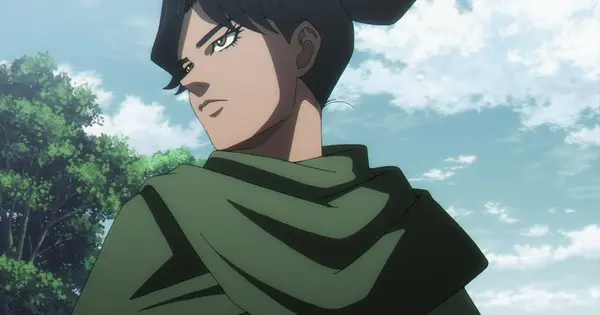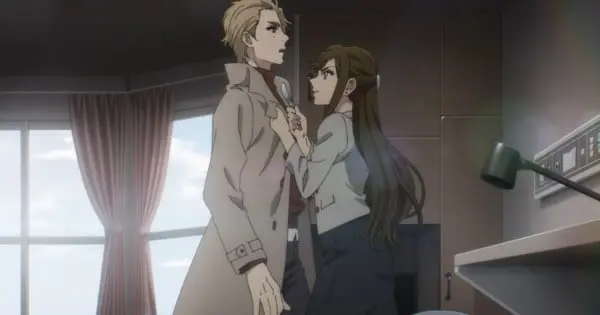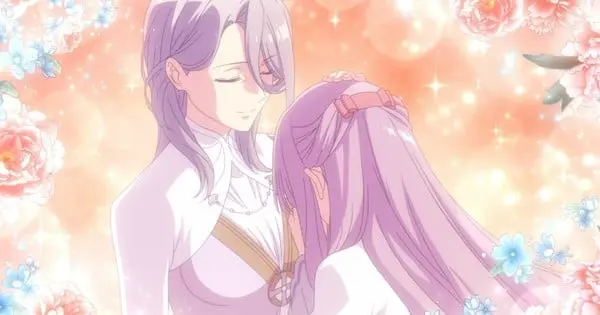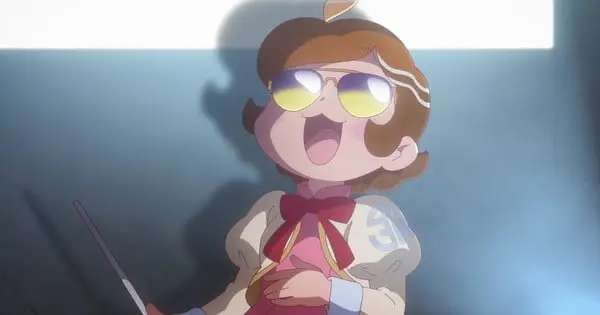A Shift in Perspective: Draka’s Introduction
Episode 17 of Orb: On the Movements of the Earth marks a significant shift in focus, moving away from the established characters to introduce Draka, a young and ambitious woman from a nomadic tribe. Unlike Oczy’s existential dread and Rafal’s intellectual pursuits, Draka’s motivations are rooted in a very tangible, worldly concern: poverty. The episode, titled “Maybe I can make a lot of money with this book,” showcases her sharp intellect and her drive to escape her past, a past marked by the loss of her father.
The Weight of Loss and the Lure of Wealth
Draka’s backstory reveals a life shaped by the absence of her father due to financial hardship. This early trauma fuels her desire to amass wealth, not for luxury but for survival and security. She views money as the ultimate shield against the vulnerability she experienced as a child. This single-minded focus on financial gain makes her a unique character in the series. While others grapple with theological and philosophical questions, Draka’s concern is with the very real material conditions of her existence.
A Discovery in the Desert
While exploring an abandoned village, Draka stumbles upon a hidden book, a manuscript secreted away by Schmidt, a member of the “heretic liberation front”. This isn’t just any book; it’s a copy of the revolutionary “Heliocentric Theory,” the very idea that Rafal and others have risked their lives to defend. The discovery sends Draka’s mind reeling; her immediate reaction isn’t one of scientific curiosity, but rather, a calculation of its monetary value. This twist in her character further separates her from the other protagonists while also showing her ingenuity.
The Seeds of Capitalism in a Heretic Text
Profit Over Piety
Draka’s initial thoughts on the heliocentric theory revolve around its potential for profit. She immediately recognizes the value of this controversial idea and its potential to disrupt the established order, not because of its scientific validity, but because of its novelty and its power to generate profit. This unconventional reaction highlights the clash between faith, science, and the burgeoning capitalist mindset within the series’ 15th-century setting. It also serves as an interesting lens through which to view the story’s themes.
The Practicalities of Heresy
In a moment of surprisingly pragmatic thinking, Draka considers the logistical challenges of disseminating this knowledge. She recognizes that the book’s impact hinges on its accessibility, which brings her to the fundamental problem of how to make copies of it. This moment not only highlights her intelligence but also touches upon a key historical challenge: the limited access to knowledge before the advent of the printing press.
A Family of Freethinkers
Draka’s uncle plays a pivotal role in her development. He is a similarly clever and self-centered individual who also questions the world around him. He introduces her to the idea of atheism, not as a religious or philosophical concept, but as a path toward critical thinking and questioning the established order. His influence shapes Draka’s approach, making her a character that values rational inquiry alongside material success. He encourages her to seek truth, and not just accept the conventional wisdom.
Conflict and Convergence: Draka’s Path
A Collision Course
Draka’s plans to capitalize on the heretical text are interrupted by the arrival of Bishop Antoni and his group. This sets the stage for a confrontation between the pragmatic opportunist and the enforcers of religious dogma. This intersection of interests creates a compelling tension, and it sets the stage for future conflicts. The convergence of these characters promises exciting developments, as their goals are fundamentally at odds.
Shared Traits and Divergent Paths
Despite their differences, Draka and Oczy share some important qualities: they are both thoughtful and scared. Oczy’s fear is existential and cosmic, driving him towards and away from religion. Draka’s fear, fueled by her past, drives her towards the accumulation of capital. This comparison highlights the different ways individuals respond to fear and loss. Both are intelligent and searching for a solution to their fears, but their chosen methods are very different.
Production and Reception
Madhouse’s Masterful Touch
Orb: On the Movements of the Earth is produced by Studio Madhouse, known for its high-quality animation and storytelling. The series is directed by Ken’ichi Shimizu, with Shingo Irie overseeing series composition and Masanori Shino crafting the character designs. The music, composed by Kensuke Ushio, is a very important part of the show and adds another layer to the story, making it more emotional and compelling. The voice cast includes Maaya Sakamoto as the voice of Rafal, Kenjiro Tsuda as Novak, and Miyuri Shimabukuro as Draka, bringing depth and emotion to their respective roles.
Critical Acclaim
The anime adaptation has garnered significant attention. It is praised for its thought-provoking narrative, compelling characters, and high production values. Many viewers have noted the series’ ability to blend historical elements with intellectual and philosophical themes and making it a fascinating watch. The series has also been recognized for its ability to surpass other popular titles, suggesting that it is striking a chord with audiences.
A 25 Episode Journey
The series is confirmed to have 25 episodes, and it is broadcast on NHK General TV, with worldwide streaming available on Netflix. Orb: On the Movements of the Earth offers a nuanced exploration of faith, reason, and the human desire for both knowledge and security, making it a standout title in the current anime season. The series’ unique blend of historical context and thought-provoking themes has solidified its position as a must-watch for anime enthusiasts.
Episode 17’s Significance
Episode 17 specifically has been lauded for its direction and dialogue, particularly the flashback sequence that highlights Draka’s motivations. The episode offers a new perspective on the series’ themes by introducing a character whose primary focus is on practical concerns, rather than intellectual debates. This new perspective adds another layer to the already rich narrative, ensuring that each episode continues to bring new ideas and concepts.
Final Thoughts
Episode 17 of Orb: On the Movements of the Earth is not only a crucial turning point for the series but also a prime example of its sophisticated narrative and character development. Draka’s introduction adds a new dimension to the story, showcasing how different individuals react to the same historical circumstances. The episode is a fascinating blend of historical drama, philosophical inquiry, and character-driven narrative, making it a compelling addition to the series. The episode is a crucial step towards showing that each character’s motivations can be different, and the show can offer many different perspectives.

